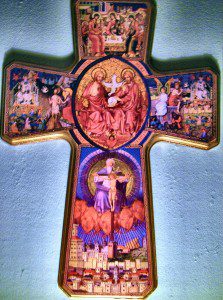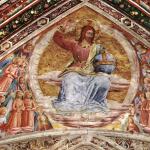
While common sense often provides basic insight which can be useful in making judgments, it is far from infallible. It represents what collective wisdom, handed down from the past, suggests for those living today. Much of that wisdom was hard-earned, and certainly, it has value, but the reason why we cannot rely upon common sense, but rather, must judge it, is because we continue to develop our understanding of the world around us. We often have discovered many presuppositions given to us from the past are false, such as various biases and bigotries which we have had to cast aside. This is why what is handed down, and emerges as common sense, should be questioned, criticized, and reformed in every age, especially by intellectuals (such as scientists and philosophers). What is learned in one age will slowly seed into society new notions which from the basis for future notions of common sense. This is why common sense in one age will be seen as erroneous in another. So many superstitions have thankfully been discounted. Nevertheless, what intellectuals hand over to future generations will need to be reformed; they still have their own biases, misunderstandings, and ignorance, which must also be confronted. While they are wise in comparison to their peers, their wisdom is limited. What is great wisdom in one age, because it is superior to what came before it, remains riddled with all kinds of errors, making it mere foolishness in comparison to what can and will come after.
Human wisdom will always be limited. There will always be more for humanity to learn. The truth, in its greatness, transcends human comprehension; those who grasp some element of the truth which others have not often appear to be foolish to their peers. The greater, transcendent truth often appears foolish, as it often goes against our expectations. This is why what God does often seems to be foolish to us: we cannot comprehend what God knows, so we cannot understand the choices which God makes. To follow the wisdom of God, as it is revealed to us, means we will often appear foolish to others because it will have us act in ways that run against common sense (or, even, the wisdom of the age we live in). We should accept that we might appear foolish and reckless to our peers when we do something which runs against their understanding of the world. We should not, of course, deny the value of either common sense or secular wisdom, but rather, we must accept that they will never be comprehensive. There are limits to their value; to transcend those limits, we rely upon a transcendent wisdom which lies beyond ourselves and our comprehension. We can, of course, do so only on faith. We cannot judge such wisdom, we can only explain why we think it is authoritative. Thus, when we accept some revelation as coming from God, we will follow it, trusting in God’s transcendent wisdom over our own. Certainly, we will do so in a human way, that is, we will engage what we learn, and try to understand in a way which connects to our own limited human understanding. That is, we will take what transcends us and form a human convention, a construct, around it to explain what it is and what it means. Since we do this, we must not confuse the convention with the truth or wisdom from which it comes, but rather, we must accept it is a human presentation of it with all the limits implied by it (which is why we can and should also accept such a convention might be made better and transcended in the future).
The way of the wisdom of God is the way of the cross, which, as Paul said, is foolishness to the world. Those who follow it will follow the greater truth even if they do not understand it. They will accept that others will think their way is foolishness, but they follow it because they put their trust in God. They believe, following it, they will be led to apprehend greater and greater truths, truths which cannot be had without God’s wisdom. In the end, they trust they will attain wisdom beyond what human reason can accomplish all by itself, and so, those who exclusively followed what limited human reason can present will attain far less than those who followed after and accepted the wisdom of God, making those who seemed foolish prove to be the ones who were wise. This is why it can be said “but God chose what is foolish in the world to shame the wise, God chose what is weak in the world to shame the strong” (1 Cor. 1:27 RSV).
The way of God is the way of the cross. The wisdom of the cross appears foolishness to the world and yet it is the way of divine wisdom. The path of the cross presents to us what is necessary to attain the greater truth, that is, self-transcendence. We need to die to the self and what we think we know and understand so that we can be open to and accept that which is beyond ourselves. We must accept that there is far more we cannot comprehend than what we can, that the greater truth will make what we seem to know appear to be mere foolishness in comparison. Christ, on the cross, reveals this to us, for Christ shows us the path which has been set up for all us to take, the path which leads us to union with and participation in the transcendent truth instead of merely looking at it and making all kinds of conjectures about it. Certainly, there is more than revelation going on in and with the incarnation, for God is also at work in and through it for the restoration of all things.
God entered creation to reveal the truth of creation, not just from outside, but from within; God does this by participating with and experiencing, as the God-man Jesus, the full realm of being. He judges all that he experiences, and in so-doing, reveals the truth of all things through that judgment. In this fashion, Jesus is the righteous judge. He judges all things while joining in solidarity with that which is to be judged. He finds the good in all things, using that to make his judgment, which turns out to be the same judgment God made when God created all things, which is to say, Jesus judges all things as being essentially good. Then, having seen and experienced all things, and the good found at all levels of being, he collects all that good upon himself so that he can take it with him in his resurrection from the dead and his ascension into heaven. Thus, we should understand him, when, he said, “I have much to say about you and much to judge; but he who sent me is true, and I declare to the world what I have heard from him “(Jn. 8:26 RSV), that Jesus does this, not only based upon the transcendence of his divine nature, but also from the immanence of his humanity. He declares what was and is revealed from the Father, that is, the fundamentally good nature of all things. Evil, in this judgment, is shown not to truly exist, but rather, to be a defect of the good. This appears to be foolishness because, as we engage the world, we see the harm which evil has caused, making us wonder how all things be good when there is so much pain and sorrow in the world? Yet, that is what we are shown, both in creation and in the recreation of the resurrection: all things are good, all things are judged to be good. Jesus affirmed this by the way of the cross, a way, which paradoxically, requires Jesus to experience all that evil can bring upon him. For only after experiencing such evil can he be shown to transcend it, and in that transcendence, show it to be nothing in and of itself. We are called to follow after him, to follow the way of the cross, embracing the goodness of all things while experiencing the pain and sorrow which is found all around us. Once we see that goodness, and how it cannot and will not be utterly destroyed, we will be able to hold onto the good, and find ourselves taken in, then, by Christ, in his ascension into heaven, whereby we will, with him and through him, find ourselves experiencing the glory of the ultimate truth, the glory of the kingdom of God itself.
Stay in touch! Like A Little Bit of Nothing on Facebook.
If you liked what you read, please consider sharing it with your friends and family!
N.B.: While I read comments to moderate them, I rarely respond to them. If I don’t respond to your comment directly, don’t assume I am unthankful for it. I appreciate it. But I want readers to feel free to ask questions, and hopefully, dialogue with each other. I have shared what I wanted to say, though some responses will get a brief reply by me, or, if I find it interesting and something I can engage fully, as the foundation for another post. I have had many posts inspired or improved upon thanks to my readers.













